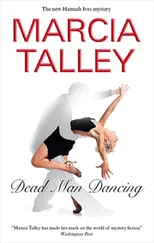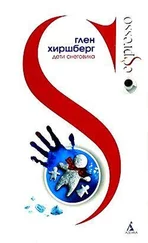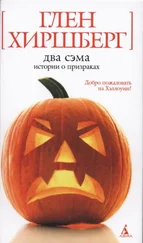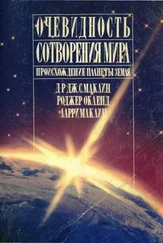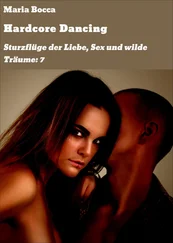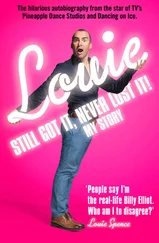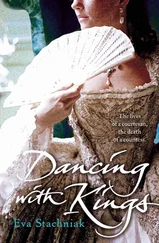Глен Хиршберг - Dancing Men
Здесь есть возможность читать онлайн «Глен Хиршберг - Dancing Men» весь текст электронной книги совершенно бесплатно (целиком полную версию без сокращений). В некоторых случаях можно слушать аудио, скачать через торрент в формате fb2 и присутствует краткое содержание. Жанр: short_story, на английском языке. Описание произведения, (предисловие) а так же отзывы посетителей доступны на портале библиотеки ЛибКат.
- Название:Dancing Men
- Автор:
- Жанр:
- Год:неизвестен
- ISBN:нет данных
- Рейтинг книги:4 / 5. Голосов: 1
-
Избранное:Добавить в избранное
- Отзывы:
-
Ваша оценка:
- 80
- 1
- 2
- 3
- 4
- 5
Dancing Men: краткое содержание, описание и аннотация
Предлагаем к чтению аннотацию, описание, краткое содержание или предисловие (зависит от того, что написал сам автор книги «Dancing Men»). Если вы не нашли необходимую информацию о книге — напишите в комментариях, мы постараемся отыскать её.
Dancing Men — читать онлайн бесплатно полную книгу (весь текст) целиком
Ниже представлен текст книги, разбитый по страницам. Система сохранения места последней прочитанной страницы, позволяет с удобством читать онлайн бесплатно книгу «Dancing Men», без необходимости каждый раз заново искать на чём Вы остановились. Поставьте закладку, и сможете в любой момент перейти на страницу, на которой закончили чтение.
Интервал:
Закладка:
Glen Hirshberg
Dancing Men
Glen Hirshberg lives in the Los Angeles area with his wife and children. He is the author of a novel, The Snowman’s Children, and a collection of ghost stories, The Two Sams, both published by Carroll & Graf in the United States.
His work has appeared in numerous anthologies, including The Mammoth Book of Best New Horror, The Year’s Best Fantasy and Horror, Dark Terrors 6, Trampoline: An Anthology and The Dark: New Ghost Stories, where “Dancing Men” made its original appearance. Both this story and The Two Sams received International Horror Guild Awards in 2004. He is currently completing a new novel and a second set of ghost stories.
“It’s gratifying and a relief to see ‘Dancing Men’ finding some sort of home for itself,” admits the author. “It took dozens of drafts and most of a year to complete, and remains an uncomfortable piece for me. I think I was so concerned with honouring the subject matter that I kept strangling the fiction.
“In terms of people lost, the Holocaust touched my family far less directly than it did so many millions of others. But it has been impossible not to notice the scars that event has left in people I love, the ongoing effects it has had on the way nations interact, the jagged holes it has ripped in language and cultural perspective and our mutual sense of what we can expect from each other.”
“These are the last days of our lives so we give a signal maybe there still will be relatives or acquaintances of these persons. They were tortured and burnt goodbye …”
— Testimonial found at Chelmno
I
We’d been all afternoon in the Old Jewish Cemetery, where green light filters through the trees and lies atop the tumbled tombstones like algae. Mostly I think the kids were tired. The two-week Legacy of the Holocaust tour I had organized had taken us to Zeppelin Field in Nuremberg, where downed electrical wires slither through the brittle grass, and Bebelplatz in East Berlin, where ghost-shadows of burned books flutter in their chamber in the ground like white wings. We’d spent our nights not sleeping on sleeper trains east to Auschwitz and Birkenau and our days on public transport, traipsing through the fields of dead and the monuments to them, and all seven high-school juniors in my care had had enough.
From my spot on a bench alongside the roped-off stone path that meandered through the grounds and back out to the streets of Josefov, I watched six of my seven charges giggling and chattering around the final resting place of Rabbi Loew. I’d told them the story of the Rabbi, and the clay man he’d supposedly created and then animated, and now they were running their hands over his tombstone, tracing Hebrew letters they couldn’t read, chanting “Amet”, the word I’d taught them, in low voices and laughing. As of yet, nothing had risen from the dirt. The Tribe, they’d taken to calling themselves, after I told them that the Wandering Jews didn’t really work, historically, since the essential characteristic of the Wanderer himself was his solitude.
There are teachers, I suppose, who would have been considered members of the Tribe by the Tribe, particularly on a summer trip, far from home and school and television and familiar language. But I had never been that sort of teacher.
Nor was I the only excluded member of our traveling party. Lurking not far from me, I spotted Penny Berry, the quietest member of our group and the only Goy, staring over the graves into the trees with her expressionless eyes half closed and her lipstickless lips curled into the barest hint of a smile. Her auburn hair sat cocked on the back of her head in a tight, precise ponytail. When she saw me watching, she wandered over, and I swallowed a sigh. It wasn’t that I didn’t like Penny, exactly. But she asked uncomfortable questions, and she knew how to wait for answers, and she made me nervous for no reason I could explain.
“Hey, Mr Gadeuszki,” she said, her enunciation studied, perfect. She’d made me teach her how to say it right, grind the s and z and k together into that single Slavic snarl of sound. “What’s with the stones?”
She gestured at the tiny grey pebbles placed across the tops of several nearby tombstones. Those on the slab nearest us glinted in the warm, green light like little eyes. “In memory,” I said. I thought about sliding over on the bench to make room for her, then thought that would only make both of us even more awkward.
“Why not flowers?” Penny said.
I sat still, listening to the clamor of new-millennium Prague just beyond the stone wall that enclosed the cemetery. “Jews bring stones.”
A few minutes later, when she realized I wasn’t going to say anything else, Penny moved off in the general direction of the Tribe. I watched her go and allowed myself a few more peaceful seconds. Probably, I thought, it was time to move us along. We had the Astronomical Clock left to see today, puppet-theatre tickets for tonight, the plane home to Cleveland in the morning. And just because the kids were tired didn’t mean they would tolerate loitering here much longer. For seven summers in a row, I had taken students on some sort of exploring trip. “Because you’ve got nothing better to do,” one member of the Tribe cheerfully informed me one night the preceding week. Then he’d said, “Oh my God, I was just kidding, Mr G.”
And I’d had to reassure him that I knew he was, I always looked like that.
“That’s true. You do,” he’d said, and returned to his tripmates.
Now, I rubbed my hand over the stubble on my shaven scalp, stood, and blinked as my family name — in its original Polish spelling — flashed behind my eyelids again, looking just the way it had this morning amongst all the other names etched into the Pinkas Synagogue wall. The ground went slippery underneath me, the tombstones slid sideways in the grass, and I teetered and sat down hard.
When I lifted my head and opened my eyes, the Tribe had swarmed around me, a whirl of backwards baseball caps and tanned legs and Nike symbols. “I’m fine,” I said quickly, stood up, and to my relief found I did feel fine. I had no idea what had just happened. “Slipped.”
“Kind of,” said Penny Berry from the edges of the group, and I avoided looking her way.
“Time to go, gang. Lots more to see.”
It has always surprised me when they do what I say, because mostly, they do. It’s not me, really. The social contract between teachers and students may be the oldest mutually accepted enacted ritual on this earth, and its power is stronger than most people imagine.
We passed between the last of the graves and through a low stone opening. The dizziness or whatever it had been was gone, and I felt only a faint tingling in my fingertips as I drew my last breath of that too-heavy air, thick with loam and grass springing from bodies stacked a dozen deep in the ground.
The side street beside the Old-New synagogue was crammed with tourists, their purses and backpacks open like the mouths of grotesquely overgrown chicks. Into those open mouths went wooden puppets and embroidered kepot and Chamsa hands from the rows of stalls that lined the sidewalk; the walls, I thought, of an all-new, much more ingenious sort of ghetto. In a way, this place had become exactly what Hitler had meant for it to be: the Museum of a Dead Race, only the paying customers were descendants of the Race, and they spent money in amounts he could never have dreamed. The ground had begun to roll under me again, and I closed my eyes. When I opened them, the tourists had cleared in front of me, and I saw the stall, a lopsided wooden hulk on bulky brass wheels. It tilted toward me, the puppets nailed to its side leering and chattering while the gypsy leaned out from between them, nose studded with a silver star, grinning.
Читать дальшеИнтервал:
Закладка:
Похожие книги на «Dancing Men»
Представляем Вашему вниманию похожие книги на «Dancing Men» списком для выбора. Мы отобрали схожую по названию и смыслу литературу в надежде предоставить читателям больше вариантов отыскать новые, интересные, ещё непрочитанные произведения.
Обсуждение, отзывы о книге «Dancing Men» и просто собственные мнения читателей. Оставьте ваши комментарии, напишите, что Вы думаете о произведении, его смысле или главных героях. Укажите что конкретно понравилось, а что нет, и почему Вы так считаете.

